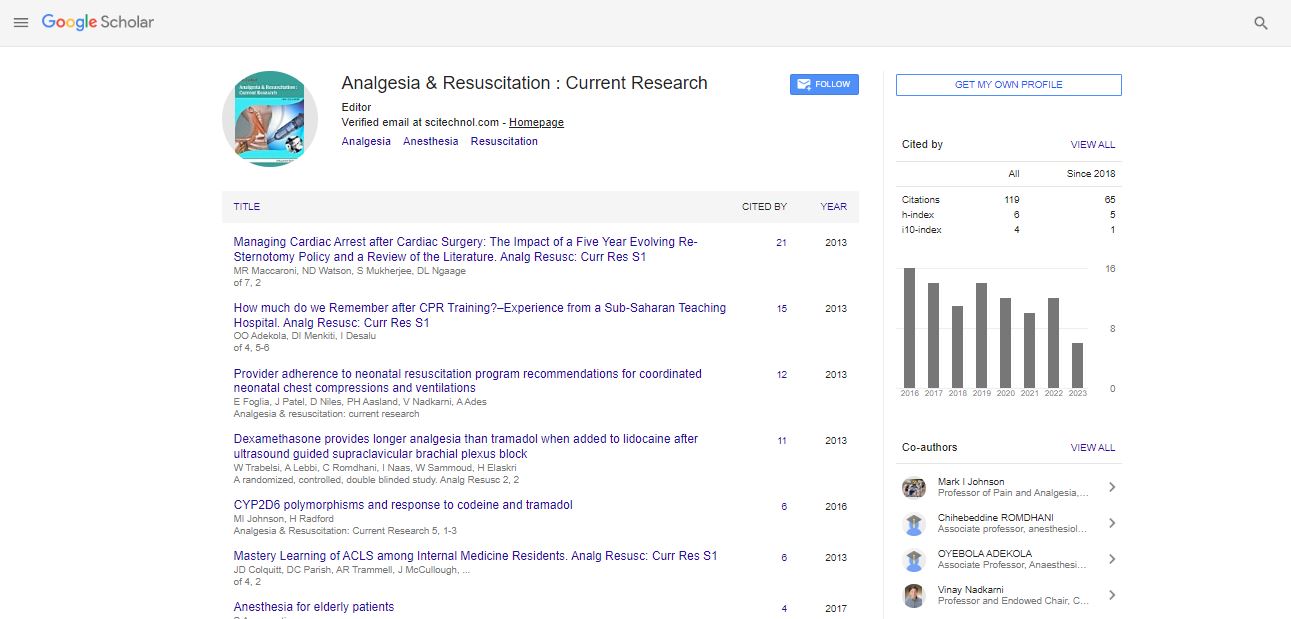NPYFa, dualsteric chimeric peptide of met-enkephalin and NPFF, prevents opioid induced tolerance
Annu Mudgal and Santosh Pasha
CSIR-IGIB, India
: Analg Resusc: Curr Res
Abstract
Background: Methionine-enkephalin-Arg-Phe (MERF) is a known endogenous amphiactive analgesic peptide. Neuropeptide FF (NPFF) is reported for long lasting analgesia, role in opioid modulation and tolerance development. Based on these reports a dualsteric chimeric peptide NPYFa (YGGFMKKKPQRFamide) was designed, having Met-enkephalin (opioid) and PQRF sequence of NPFF at C-terminal which can target both opioids and NPFF receptors. The aim of the present study was to determine opioid induced analgesia upon acute treatment and its tolerance development upon chronic exposure. Results: NPYFa demonstrated early onset, dose dependent and prolonged anti-nociception. Antagonists (μ, κ and δ receptor) pretreatment studies alone or together and with NPFF receptors antagonist demonstrated κ-opioid receptors mediated antinociception. RF9, NPFF receptor antagonist exhibited additive effect to NPYFa acute analgesia, suggesting participation of NPFF receptors. In addition both Eu-GTP-γS binding assay and FACS analysis further corroborated the observed acute analgesia showing significant binding with KOR and NPFF2 receptorssuggesting its multiple binding nature. Further chronic (6 days) treatment effect of NPYFa showed up-regulation of protein expression of these receptorssuggesting no tolerance development to the NPYFa acute analgesia. Conclusions: Thus, NPYFa demonstrated potent, long lasting anti-nociception without tolerance development. Hence NPYFa may prove to be a potent analgesic probe with less tolerance development
 Spanish
Spanish  Chinese
Chinese  Russian
Russian  German
German  French
French  Japanese
Japanese  Portuguese
Portuguese  Hindi
Hindi 
